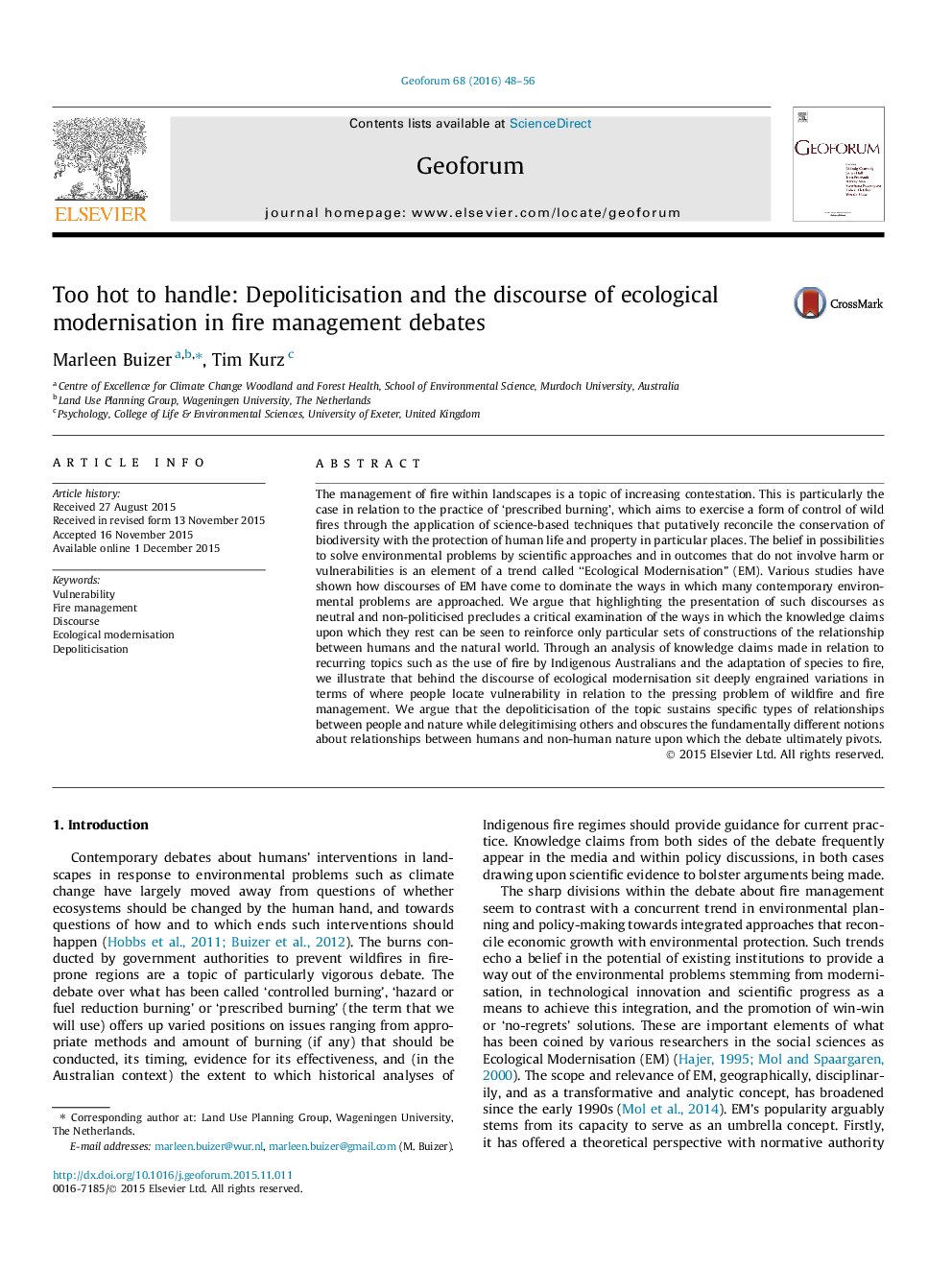| Article ID | Journal | Published Year | Pages | File Type |
|---|---|---|---|---|
| 5073707 | Geoforum | 2016 | 9 Pages |
â¢Ecological Modernisation masks diverse valuations of vulnerability in fire debates.â¢Ignoring different notions of vulnerability leads to depoliticisation.â¢Depoliticisation prevents genuine debate about what is lost and gained with fires.â¢Academic scholarship should help design sites of 'healthy contestation'.
The management of fire within landscapes is a topic of increasing contestation. This is particularly the case in relation to the practice of 'prescribed burning', which aims to exercise a form of control of wild fires through the application of science-based techniques that putatively reconcile the conservation of biodiversity with the protection of human life and property in particular places. The belief in possibilities to solve environmental problems by scientific approaches and in outcomes that do not involve harm or vulnerabilities is an element of a trend called “Ecological Modernisation” (EM). Various studies have shown how discourses of EM have come to dominate the ways in which many contemporary environmental problems are approached. We argue that highlighting the presentation of such discourses as neutral and non-politicised precludes a critical examination of the ways in which the knowledge claims upon which they rest can be seen to reinforce only particular sets of constructions of the relationship between humans and the natural world. Through an analysis of knowledge claims made in relation to recurring topics such as the use of fire by Indigenous Australians and the adaptation of species to fire, we illustrate that behind the discourse of ecological modernisation sit deeply engrained variations in terms of where people locate vulnerability in relation to the pressing problem of wildfire and fire management. We argue that the depoliticisation of the topic sustains specific types of relationships between people and nature while delegitimising others and obscures the fundamentally different notions about relationships between humans and non-human nature upon which the debate ultimately pivots.
